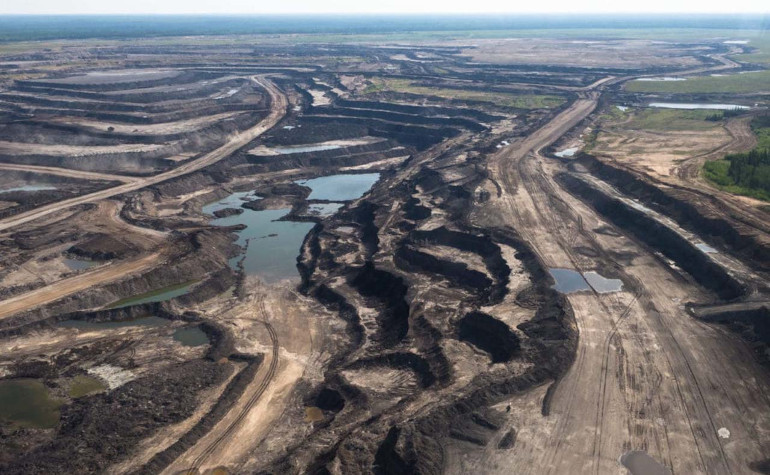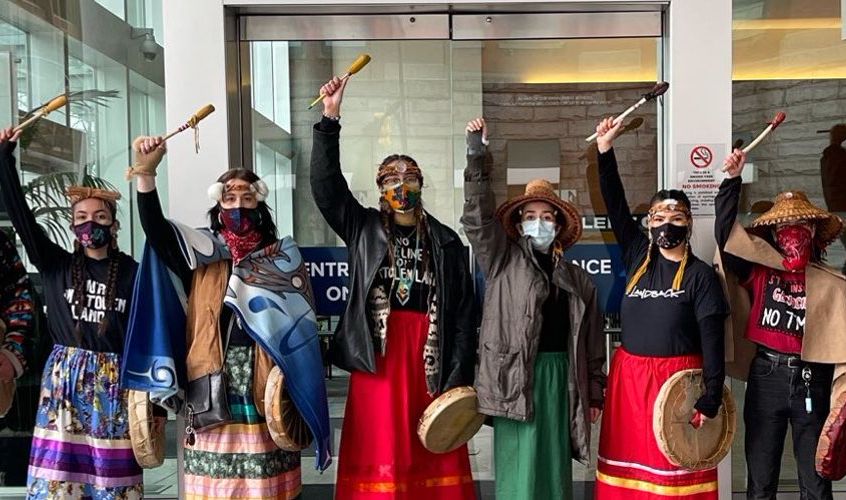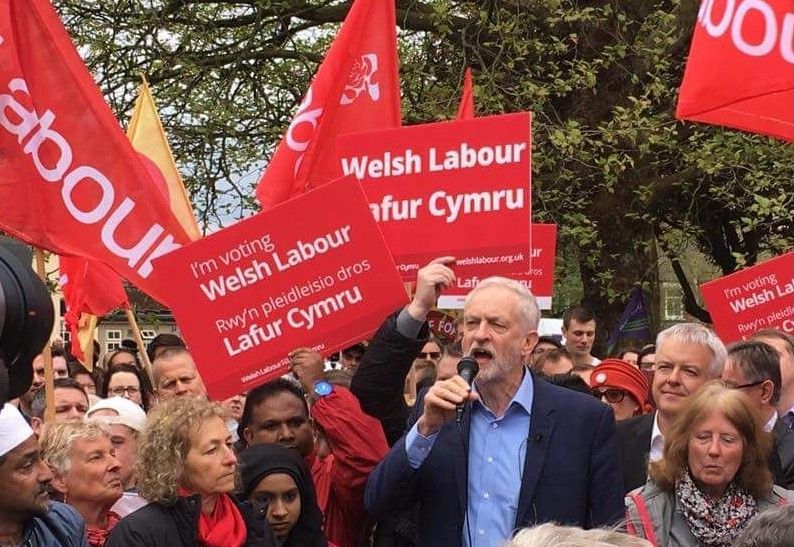When the NDP swept to power in Alberta in 2015, many people were in shock. For 44 years, the Progressive Conservatives ruled the province, the longest unbroken run in government at the provincial or federal level in Canadian history. But the NDP’s rule has proved to be a temporary interruption in a long line of conservative rulers.
Jason Kenney’s United Conservative Party swept to power, taking 54.9% of the votes and 63 seats. The New Democratic Party (NDP) came in second winning 32.7% of the votes and 24 seats. In the two elections prior to 2015, the NDP wasn’t even the official opposition, having just won two seats in 2008 and four seats in 2012. It wasn’t since the late 1980s that the NDP had won more than a handful of seats (16 seats in both the 1986 and 1989 elections) and they were wiped off the electoral map in 1993.The vote on April 16 was geographically polarized with the NDP winning 83% of its seats in the Edmonton region (19 seats in Edmonton and one seat in St. Albert) with just three seats in Calgary and one in Lethbridge. On the other hand, UCP dominated Calgary and rural Alberta.
| Alberta Elections: Parties (Number of Seats) | 2008 | 2012 | 2015 | 2019 |
| Alberta Party | 0 | 0 | 1 | 0 |
| Liberal Party | 9 | 5 | 1 | 0 |
| NDP | 2 | 4 | 54 | 24 |
| Progressive Conservatives | 72 | 61 | 10 | 0 |
| United Conservative Party | N/A | N/A | N/A | 63 |
| Wildrose Party | 0 | 17 | 21 | 0 |
A close look at Alberta reveals two sides to the province, reflecting fundamental shiftsand a growing polarization between the past, socially-conservative province and a younger,more diverse, educated and urban Alberta that favours less dependence on the oil sector. Alberta’s average age of 36.9 is four years younger than the Canadian average.It has seen a 66% increase in enrollment in post-secondary education over the past 20 years. 38% of Calgarians are either a visible minority or Indigenous.Most of Alberta’s population is urban, with about two-thirds living either in or around Calgary or Edmonton.
On social issues, Alberta is changing from its conservative base. Support for same-sex marriage has increased by 16 points in nine years, support for abortion choice has increased by seven points, support for doctor-assisted suicide has increased by nearly 20 points.Tens of thousands of people lined the streets for the biggest Pride parade in Calgary’s history this past September. And these parades aren’t just in the big cities — Lethbridge, Medicine Hat and even small towns such as Tabor, saw vibrant and exciting Pride celebrations this past year. High school students across the province are planning a walkout on May 3 to protest Kenney’s plans to change the law introduced under the NDP to protect students in Gay-Straight Alliances.
Many of Notley’s policies proved to be popular with the new Alberta: her NDP government promised and delivered on a $15 minimum wage, the first province in Canada to reach this milestone. They implemented $25-a-day daycare, created a status of women’s ministry, increased the corporate tax rate to 12% from 10%, reversed cuts to public services and didn’t implement the planned monthly health care premiums.
She also implemented strategies for energy efficiency and renewable energy including a plan to phase out coal by 2030, with a goal to have 30% of Alberta’s electricity come from renewable sources by 2030.
The NDP won the 2015 election because the conservative vote was split between the Tories and Wildrose and there was widespread unpopularity with the Tories. The province was reeling from the collapse in oil and gas prices, with a 50% drop between 2014 and 2015. The Conservatives, led by Prentice who was seen as arrogant and out of touch, announced a crisis austerity budget with 59 increases in taxes and fees for working people; cuts to health, education and other services; and no tax increase on corporations, which were the lowest in Canada. The NDP, not expecting to win, had for them, a radical platform.
However, they ended up prisoners of Alberta’s oil and gas sector. As we wrote in an article after the NDP’s victory, “The oil barons are used to running the province and will seek to do the same, regardless of who is the elected government.”
Oil prices have climbed since 2015, but only modestly, not reaching anything like the early high of 2011 – 2014 of an average of around $100 a barrel for crude oil. The economy has not diversified, with oil and gas remaining the largest contributor to GDP. Faced with low oil prices, the provincial government, along with the federal Liberals, have peddled the myth that building pipelines will increase the demand for Alberta’s bitumen and its price. This, it is hoped, would boost the province’s revenue and provide up to 15,000 long-term jobs. The reality is very different.It is a myth that the pipeline to Vancouver will bring back the boom to Alberta’s oil industry. The tar sands industry is shedding thousands of jobs as technology replaces workers. Suncor, one of the big tar sands companies, has announced it is cutting 400 jobs, replacing truck drivers with automated trucks.
After being the boom province of Canada for years,Alberta is struggling with higher unemployment than the rest of Canada, except for the Atlantic provinces.
Kenney’s victory, in part, was due to the merger, in 2017, of the Wildrose and Progressive Conservative Parties, forming the United Conservatives (UC). Jason Kenney represents the old Alberta; he’s a former Reform MP with a strong social conservative bias against abortion rights and same-sex marriage. But he also represents the jobs argument which is what most people care about. He also uses half-truths to whip up resentment about other parts of Canada, particularly Québec which receives equalization payments and British Columbia where there is considerable opposition to the pipeline expansion. When there are no clear alternatives, the jobs and oil economy argument wins, hands down. Despite the smell of scandal around his leadership election, it didn’t stop UC winning.
Notley, despite pushing pipeline expansion to the west coast, was caught between the conservative, and more rural Alberta that celebrates its historical attachment to the oil-based economy and the new Alberta that favours weaning itself from its oil habit. In a pre-budget survey, 86% of Albertans said the economy was too dependent on oil and gas and 71% thought the oil and gas companies do not pay enough in royalties to the province. But a river runs between this aspiration and Alberta’s ongoing dependence on oil. Young men, used to the good pay that jobs in the oil patch provide, do not see a clear future in the new Alberta.
Kenney has pledged to reduce the minimum wage for youth and for alcohol servers. He has said he will end labour rights for farmworkers introduced by the NDP, has threatened to introduce private health care and will undoubtedly cut services and attack workers. He is determined to kill the provincial carbon tax and get rid of the NDP’s climate leadership plan, including reversing the plans to shut down the coal plants and getting rid of Energy Efficient Alberta.Kenney has said a UC government would cut corporate taxes to 8% from 12% over the next four years. If there’s insufficient movement on the Trans Mountain pipeline expansion by fall 2021, Kenney has also promised a referendum on removing equalization from the constitution. However, there is no legal basis to do this as this is a federal matter.
After elected, he issued a threat “To the Rockefeller Brothers Fund, the Tides Foundation, Lead Now, the David Suzuki Foundation and all of the others: Your days of pushing around Albertans with impunity just ended. We Albertans are patient and fair minded, but we have had enough of your campaign of defamation and double standards.”
A UC government in the era of low oil prices and a possible new world recession will be a huge shock to Albertans, who have been used to decades of higher wages and better public services than the Canadian average.
With Jason Kenney’s United Conservatives leading the government, there will be inevitable clashes between the two provinces. His socially-conservative politics won’t wash with the new Alberta and neither will the oil politics – in the long run. While purporting to support the working class, his politics of division, cuts in wages, human services and corporate taxes will ultimately betray the working class. Instead of supporting jobs in renewable energy, his support to the oil barons will only fuel tensions. Albertans need to chart a new road: one that provides good jobs, a healthy environment and that offers needed public services. The Capitalist road can’t deliver Albertans this future. The Socialist road is the only future that will wean Albertans off oil, provide good jobs and services for all.




